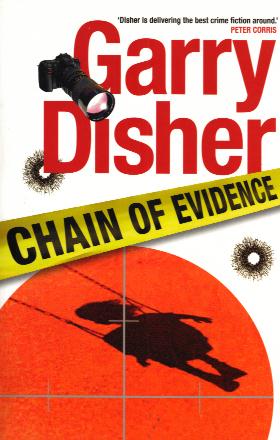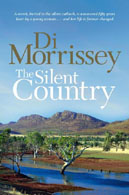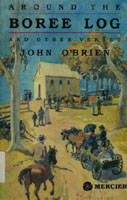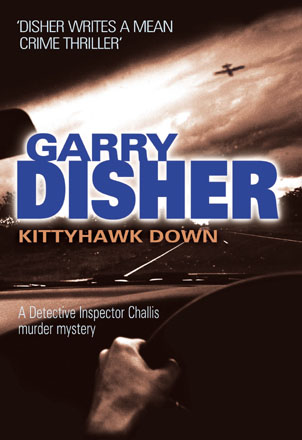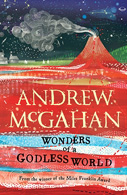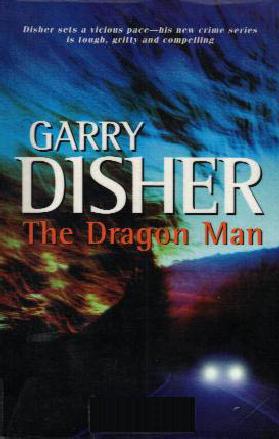THE EDITOR OF THE MERCURY.
Sir,-In a colonial periodical, the Australian Journal, a tale appears in parts, entitled "His Natural Life," by Marcus Clarke, the scene of which is laid in Tasmania. That lucubration purports to be an historical novel, descriptive of unutterable horrors attending penal discipline when Tasmania was a penal colony. This "smart" writer, in pandering to that widely prevailing and debased taste of sensationalism, which battens on Newgate Calendar literature, has gone so far beyond the bounds of truth or probability, as to render his pages offensive to Tasmanians, and even inimical to the interests of the colony.
It is well known that our Victorian neighbours never lose an opportunity of pointing the finger of derision at this colony for its having been made the depot of England's criminals; and were it desirable that this ridiculous sentiment of scorn should be intensified and extended, no more fitting instrument could be found for the purpose than the writer in question.
Mr. Clarke's great aim in his weak story seems to be that of painting Tasmania, to within a very recent period, as a very Pandemonium of horrors, crime, and suffering, such as no other part of the globe ever bore; and what may give the matter the stamp of credence among some of the readers of the Australian Journal, is the fact of the writer having paid this colony a visit last year, ostensibly for the purpose of making notes from the Crown records of crime and punishment. With this object he visited Port Arthur, and it is for the Commandant of that station to say how far his horrifying descriptions agree with the records to which he may have had access.
It would appear from "His Natural Life" that the most dehumanising atrocities were of most common occurrence at Point Puer, and that "baby-convicts" were frequently driven to commit suicide in order to escape from the persecution of the fiends placed in charge of them. It is accepted as a truism that human nature is much the same all the world over, and, therefore, that petty tyranny and heartless brutality occasionally made their appearance at Port Arthur, is only to be expected, as they did in aforetime in America, and other of England's penal settlements. It is quite a different thing when, from the heads of departments down to the most petty constable, all are described as being very fiends incarnate.
It is fresh in the minds of your readers, how, not long since, our walls were covered with posters announcing the advent of this story, and this is the stuff the smart writer foists upon us. Without doubt, it will find excited admirers among your Pollys and Biddys - "them as has feelin's, 'motions, and senterments of Christyuns, although they didn't be born with silver spoons in their mouths" - while not a few tears may be shed with the broom in one hand and the Australian Journal in the other.
Tho following is an example from this remarkable tale:-" An unlucky accident had occurred at Point Puer that morning, however, and the place was in a suppressed ferment. A refractory little thief named Peter Brown, aged ten years, had jumped off the high rock and drowned himself in full view of the constables. These 'jumpings off' had become rather frequent lately, and Burgess was enraged at one happening on this particular day of all days. If he could by any possibility hare brought the corpse of poor little Peter Brown to life again, he would have soundly whipped him for his impertinence."
And again:
"Unfortunately, when Dora went away, Tommy and Billy put into execution a plan which they had carried in their poor little heads for some weeks.
"I can do it now,' said Tommy. 'I feel strong.' " 'Will it hurt much, Tommy?' said Billy, who was not so courageous.
"'Not so much as a whipping.'
" 'I'm afraid ! Oh, Tom, it's so deep ! Don't leave me. Tom !'
"The bigger baby took his little handkerchief from his neck, and with it bound his left hand to his companion's right.
" 'Now I can't leave you.'
"'What was it the Lady that kissed us said, Tommy?'
" 'Lord have pity on them two fatherless children!' repeated Tommy.
" 'Let's say it, Tom.' "
"And so the two babies knelt down on the brink of the cliff, and, raising the bound hands together, looked up at the sky, and said, 'Lord have pity on us two fatherless children' ! And then they kissed each other, and 'did it."
Mr. Clarke's deplorably imperfect sense of the value of literary truth has been strikingly displayed on very many occasions, especially so in a geological controversy with myself in the columns of the Australasian last year, when his lamentable failing made him look painfully ridiculous in the eyes of those who know him, and are acquainted with geology. But because a man with a rage for writing is afflicted with an infirmity, are we on that account to tolerate in silence such a wholesale libel ? He may screen himself under the plea of fiction, but the attributes of historical fiction are considered to be derived from the actual truth.
Mr. Clarke came to Tasmania unannounced; sojourned unnoticed, and departed unmissed. No fetes were given, no triumphal arches were erected, and no banquets were spread to do him honour. Can the remembrance of this oversight have anything to do with the origin of his false statements and ungenerous reflections? There must indeed be a sad paucity of material for the makers of colonial books to work upon, when they must needs rake from the vaults of the past those things which belong exclusively to it, and which had far better be forgotten. Assuming even that the statements of this writer had about them a shadow of truth, I would ask what good can result from such harrowing details, save that of selfishness in increasing the sale of his books, and gratifying a debased appetite for sanguinary sensationalism ?
Possibly Mr. Clarke may think these remarks not a bad advertisement. If, however, the sale of a few extra copies of the publication will counterbalance the indignation that must be felt among Tasmanians for his pernicious fiction, he is quite welcome to such an addition to his purse.
Let our Sydney neighbours be warned lest this writer pay them a visit to make Notes. Let him not have access to Cockatoo Island unless it be under the auspices of the Crown, as most likely there would appear, as a sequel to "His Natural Life," "His Unnatural Death."
A little advice in conclusion. Let Mr. Clarke follow in the footsteps of those great fictionists he professes so much to admire - to forsake prostituting his pen by pandering to unwholesome and depraved tastes - to set an example of healthy, entertaining, and instructive colonial literature, and then he will have the satisfaction of knowing that he is not only useful in his generation, but that he stands a fair chance of leaving his mark on the scroll of Australian history.
Yours truly,
S. H. WINTLE,
Hobart Town,
April 15th, 1871.
First published in The Mercury, 19 April 1871
[Thanks to the National Library of Australia's newspaper digitisation project for this piece.]
Note: they don't write letters like this anymore.
Samuel Henry Wintel has an entry in the Australian Dictionary of Biography.
